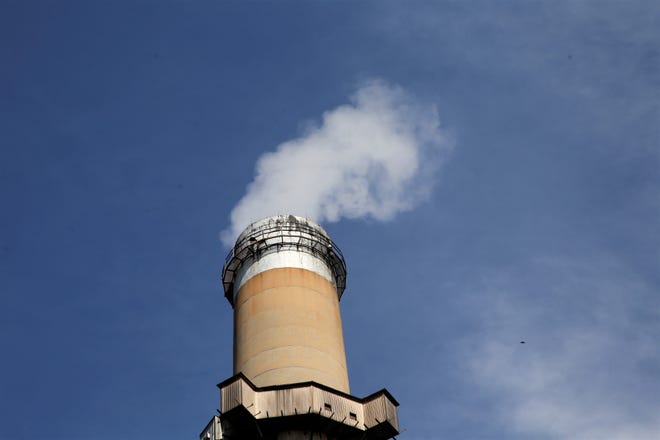Spending package includes extension of 45Q tax credit deadline, other carbon capture measures

AZTEC — A federal spending bill signed by President Donald Trump includes various provisions aimed at promoting the development of carbon capture technologies and projects aimed at reducing carbon dioxide emissions.
The Consolidated Appropriations Act 2021, which Trump signed on Dec. 27, includes dozens of pieces of legislation. The majority of the attention the act received focused on the section related to COVID-19 relief and whether Americans would receive stimulus checks. Officials say the provisions in the spending package could help carbon capture projects like the San Juan Generating Station retrofit.
The provisions tucked into the spending package include extending the deadline for when construction must begin on projects to qualify for the 45Q tax credit. Previously the projects had to be under construction by the end of 2023. The extension gives developers until Dec. 31, 2025, to begin construction.
"The San Juan Generating Station carbon capture project will be the largest project of its kind in the world," said Enchant Energy CEO Cindy Crane in a statement. "We are encouraged that this legislation will bring additional support for our project that will provide so many benefits to our state, local communities, and the environment. We look forward to continuing our work with the Department of Energy and other federal agencies to identify further opportunities to accelerate, support, and enhance the San Juan Generating Station carbon capture project."
The City of Farmington has partnered with Enchant Energy to retrofit the power plant in an effort to keep it open after the summer of 2022, when the majority owner Public Service Company of New Mexico plans to cease operating the plant.
“The provisions of this legislation show strong, concrete evidence of bipartisan support of carbon capture and its important role in mitigating climate issues,” said Farmington Mayor Nate Duckett in a statement. “The two-year extension of the 45Q tax credits and various initiatives extending and enhancing current programs is extremely encouraging. This legislation is another step forward in our efforts to keep San Juan Generating Station open, saving 1,500 jobs and creating new ones.”
One of the other pieces of legislation included in the spending package was the USE IT Act, which is intended to help bolster carbon capture in the United States through research and development as well as easing regulatory hurdles. The USE IT Act was pushed by lawmakers from Wyoming and received bipartisan support.
The USE IT Act includes a carbon utilization program, which focuses on identifying uses for carbon dioxide through research, development, demonstration and commercialization. Projects will be prioritized that have access to a stream of carbon dioxide emissions generated by a stationary source such as a coal-fired power plant that is capable of supplying at least 250 metric tons of carbon dioxide a day.
The priority projects should also have access to equipment for testing small scale carbon dioxide utilization technologies and have larger test bays on site to scale up the technology. Additionally, projects will be prioritized if they have one or more partnerships with a national laboratory, an institute of higher education, a private company or a state or other government entity.
The spending package also includes the establishment of a carbon capture technology program to help develop technologies that will reduce the price of retrofitting coal or natural gas plants with carbon capture technology and will also make the technology more effective at reducing emissions. This program will include research and development as well as large-scale demonstration pilot projects.
While the legislation received bipartisan support, carbon capture is not without its critics. Critics argue that large-scale carbon capture projects are expensive. They point to the Petra Nova Project in Texas shuttering this year amid a drop in oil prices that led to reduced demand for carbon dioxide for enhanced oil recovery. Some of the critics say the money would be better spent developing clean and renewable energy sources amid the climate crisis.
Hannah Grover covers government for The Daily Times. She can be reached at 505-564-4652 or via email at hgrover@daily-times.com.
Support local journalism with a digital subscription: http://bit.ly/2I6TU0e